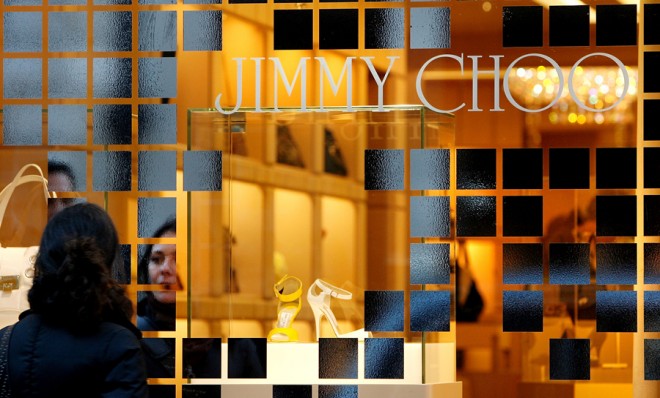The rich are getting richer... and going shopping
Retailers are running away from the middle class — in both directions

A free daily email with the biggest news stories of the day – and the best features from TheWeek.com
You are now subscribed
Your newsletter sign-up was successful
Several economic trends are redefining the retail landscape and continuing the bifurcation of the U.S. population. Just call us barbell nation.
The barbell effect has U.S. retailers concerned as the middle class gets squeezed and shoppers increasingly fall into the very high or very low end of the consumer spectrum. Simply put, the rich are getting richer and the middle class is getting poorer — and our retail stores reflect this.
I recently wrote about America's Dollar Store Revolution and the growing number of retail outlets serving the growing number of low-income shoppers. Family Dollar, Dollar General, and Dollar Tree collectively operate close to 30,000 locations, with new units popping up almost daily. Their growth is propelled by the growth of the lower class, as four out of five Americans are struggling to make ends meet.
The Week
Escape your echo chamber. Get the facts behind the news, plus analysis from multiple perspectives.

Sign up for The Week's Free Newsletters
From our morning news briefing to a weekly Good News Newsletter, get the best of The Week delivered directly to your inbox.
From our morning news briefing to a weekly Good News Newsletter, get the best of The Week delivered directly to your inbox.
We are a nation of segregated shoppers, where the haves shop at Neiman's and Nordstrom and the have-nots shop at dollar stores.
"In 2003, there were 56,100 families worth $50 million or more controlling, in the aggregate, $11.8 trillion," David Friedman, president of Wealth-X, told Forbes. "Today there are 107,100 families worth $50 million or more. That's an increase of 6.7 percent annually. These families control $22.9 trillion, which is an increase of 6.9 percent annually."
The "ultra wealthy" don't just have a disproportionate amount of the nation's wealth, they do a disproportionate amount of spending given the size of its cohort, and more retailers are trying to woo this group. Nordstrom, Neiman Marcus, and Saks Fifth Ave. all cater to this group.
But those stores don't cater to the rest of us. Consider this: Every year, Chicago kicks off holiday shopping with the Magnificent Mile Lights Festival. Sponsor Disney makes sure the event draws families from all walks of life to Michigan Avenue on the Saturday before Thanksgiving to see a parade and the lighting of the shopping district's holiday lights. The event was founded by the area merchants association and is meant to give retailers a leg up on holiday sales.
A free daily email with the biggest news stories of the day – and the best features from TheWeek.com
Except for those retailers that cater to luxury buyers. Neiman Marcus, Cartier, Escada, and Chanel close early. These stores are not for casual shoppers. They don't want browsers.
What of upper middle class buyers who might splurge on a big purchase from time to time? That shopper is rare and getting rarer. And the middle-class squeeze is also squeezing out middle market retailers. Sears, J.C. Penney, and even Kohl's — once the darlings of Wall Street — are suffering, trying to find themselves in a bifurcated (barbell) retail landscape.
Consider Sears. The mid-range department store is going after luxury buyers, announcing recently that it will sell designer goods in its online marketplace via third-party vendors. Meanwhile, Sears Marketplace is set up to compete with Amazon and eBay, allowing third parties to list and sell goods not found at Sears and Kmart stores.
Will luxury shoppers buy Rolex watches and Jimmy Choos from Sears.com? Most retail industry pundits doubt it. And while it could be one more desperate play from stuck-in-the-middle Sears, it points to where the money's at in retail — at either end of the barbell.
-
 The ‘ravenous’ demand for Cornish minerals
The ‘ravenous’ demand for Cornish mineralsUnder the Radar Growing need for critical minerals to power tech has intensified ‘appetite’ for lithium, which could be a ‘huge boon’ for local economy
-
 Why are election experts taking Trump’s midterm threats seriously?
Why are election experts taking Trump’s midterm threats seriously?IN THE SPOTLIGHT As the president muses about polling place deployments and a centralized electoral system aimed at one-party control, lawmakers are taking this administration at its word
-
 ‘Restaurateurs have become millionaires’
‘Restaurateurs have become millionaires’Instant Opinion Opinion, comment and editorials of the day